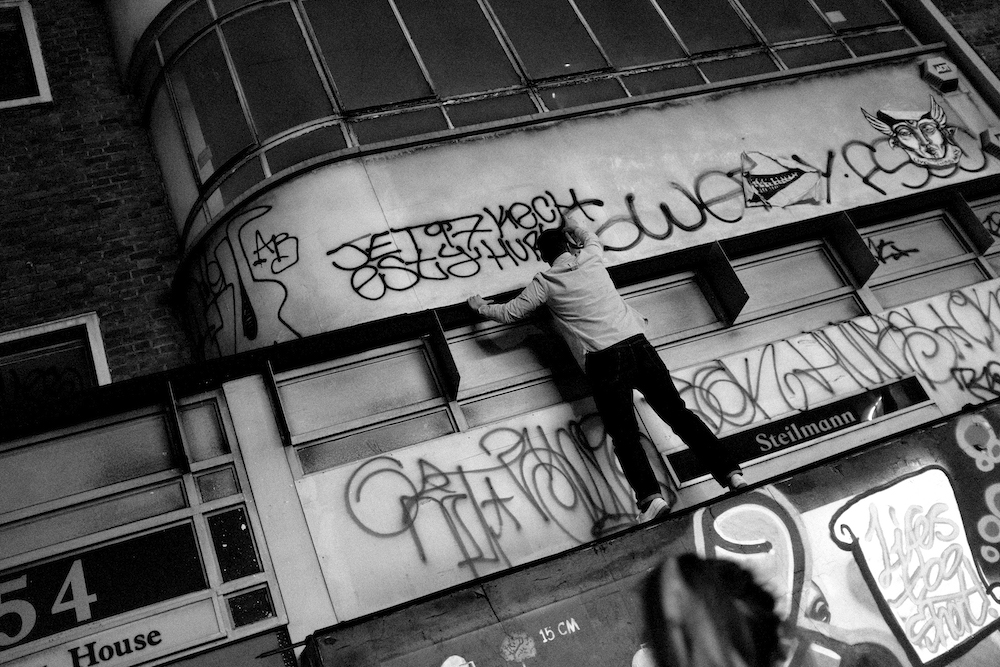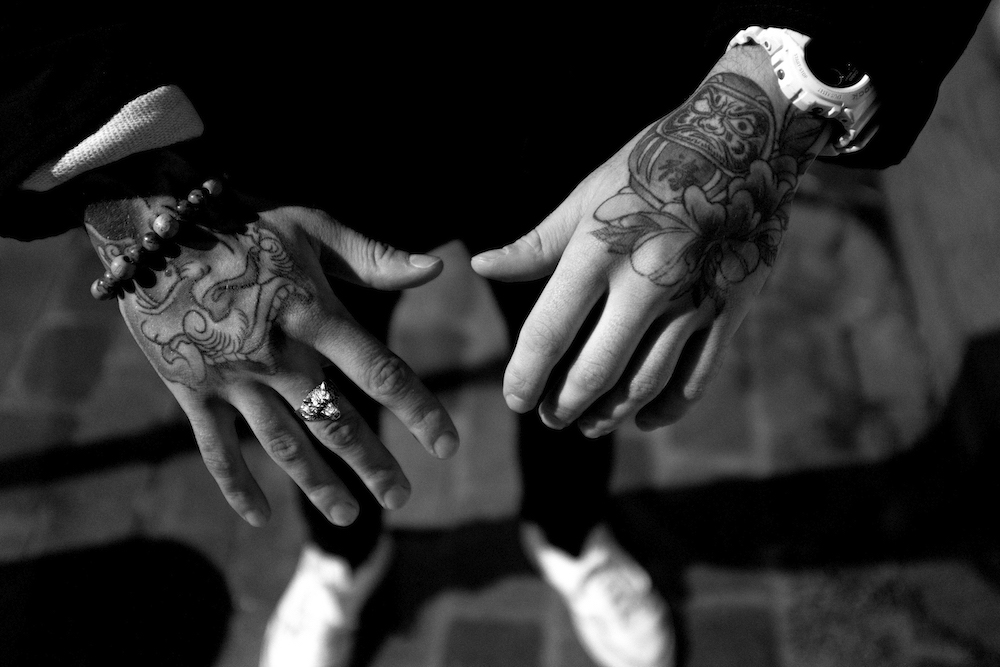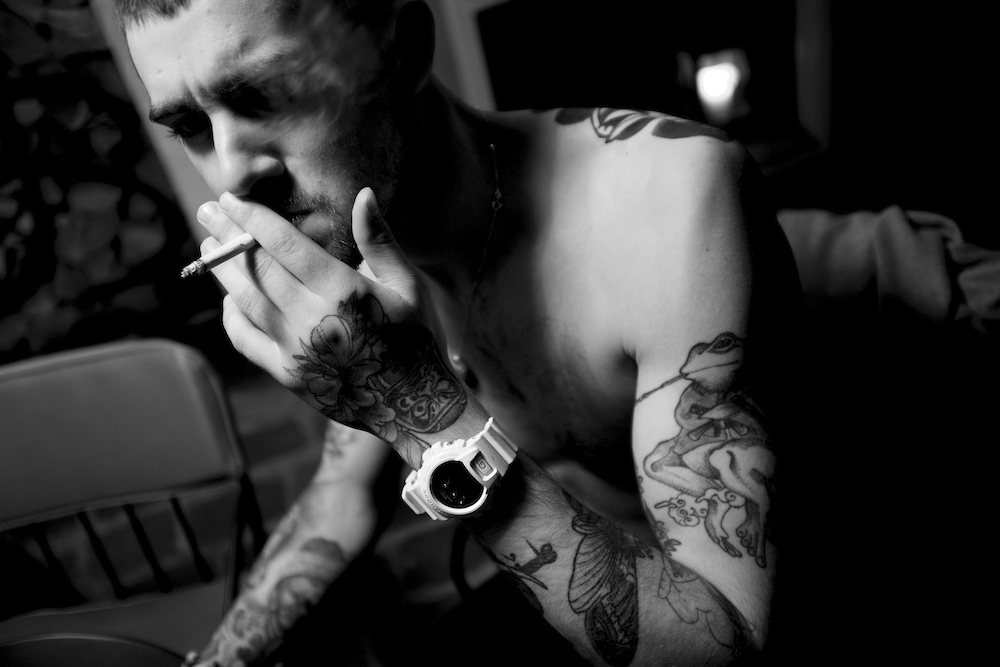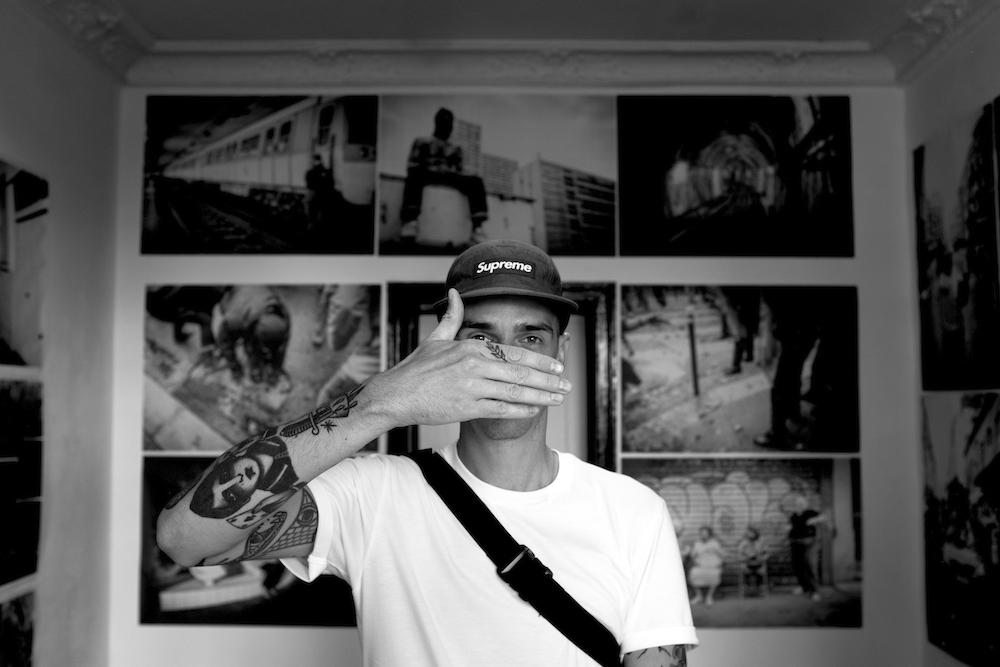Number Thirteen

Graffiti writer, London, 2019.
Text Alexander Clay
Larglely polemic in tone, Marc Vallée’s body of work focuses on the lives of his photographic subjects in their pursuit of desires and passions at odds with cities built for the safe circulation of commodities. Implicated are socially-held views of his subjects as in some way undesirable, as they are pushed away from the eyes of the public. In these works, urban objects become set-pieces in a battle for control over space, Anti-Skateboarding Devices (2012) and The Graffiti Trucks of Paris (2017) providing the most stark examples of this.

Graffiti truck, Paris, 2019.
In Number Thirteen, however, Vallée takes a looser, more autobiographical tone, as the process through which these polemics come together becomes the object of documentation. In this sense, we are left wondering how the photographic subject, in pursuit of what they desire, already possesses some quality that is desired by the photographer. As the streets of London, Paris and Berlin unfold within each other, we are left with the distilled essence of the collaboration process; layers of personal and collective history made manifest in marks on a page.

Alex, Paris, 2019.

Alex, Paris, 2019.

Alex, Paris, 2019.
In The Dialectics of Seeing (1989), Susan Buck-Morss reconstructs the Parisian meanderings of German philosopher Walter Benjamin in the course of writing his ill-fated magnum opus, The Arcades Project (1927-1940). Most striking is Benjamin's concept of 'phantasmagoria', in which dazzling rows of shopfronts capture our reflection and place it within a world of glittering commodities for sale. Alienating in effect, this hall of mirrors distorts our self- awareness, enclosing our wandering desires within a system of consumption that promises limitless gratification. But these architectural forms are as disposable as the commodities they house - the city is both relentlessly new and perpetually obsolete.

Artist and filmmaker Andrew Finch, London, 2018.
One way of reading Benjamin on photography is to understand that the photograph, like any other item, is the objectified form of the wider social relations that produce it. The crucial difference with a photograph (as with any other art-object in Benjamin’s view), is that it is not overdetermined by these social relations. The intention of the artist, its representation of its subjects, its reception by the viewer (etc.); all of these present an opportunity to make the viewer aware of the capture of their desires by capital, and incite their curiosity in more antagonistic directions.

French photographer BadYear85, Berlin, 2019.

Graffiti truck, London, 2019.
It is precisely this effect that Vallée achieves through his body of work, as we wrest some utopian impulse from the playfully subversive tête-à-tête between his photographic subjects and the dystopia built around them. As recollection without nostalgia and longing without melancholia, Number Thirteen’s gentle autobiography allows us to inhabit Vallée’s own curiosity. Less a riotous tearing up of the Parisian pavements and more a languid moment on the beach rumoured to lie beneath, our own desires are moved toward something less easily contained by capital. Photography like this, both reflective and critical, is essential in the fightback against the internal (as well as the external) hold of the neoliberal city over ourselves.

French male sex worker and political activist Thierry Schaffauser, Paris, 2018.

French photographer BadYear85, Paris, 2019.

German photographer Thomas Von Wittich, Paris, 2019.

Graffiti truck, Paris, 2019.
Alexander Clay is motivated by a lifelong curiosity toward the ways in which authority is enacted upon, between and within humans. In 2015, he graduated in Law at Birkbeck College, University of London, with a focus on the role of economic forces in the emerging social and legal entity we call ‘the neoliberal city’. Detecting a gap in his analysis, Alexander decided to undertake a Masters in Psychosocial Studies at Birkbeck, concentrating his efforts on understanding the place of psychoanalysis in critical social theory. Alexander completed his MA in 2019.